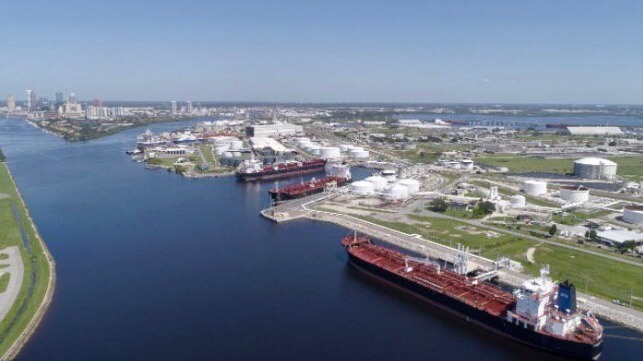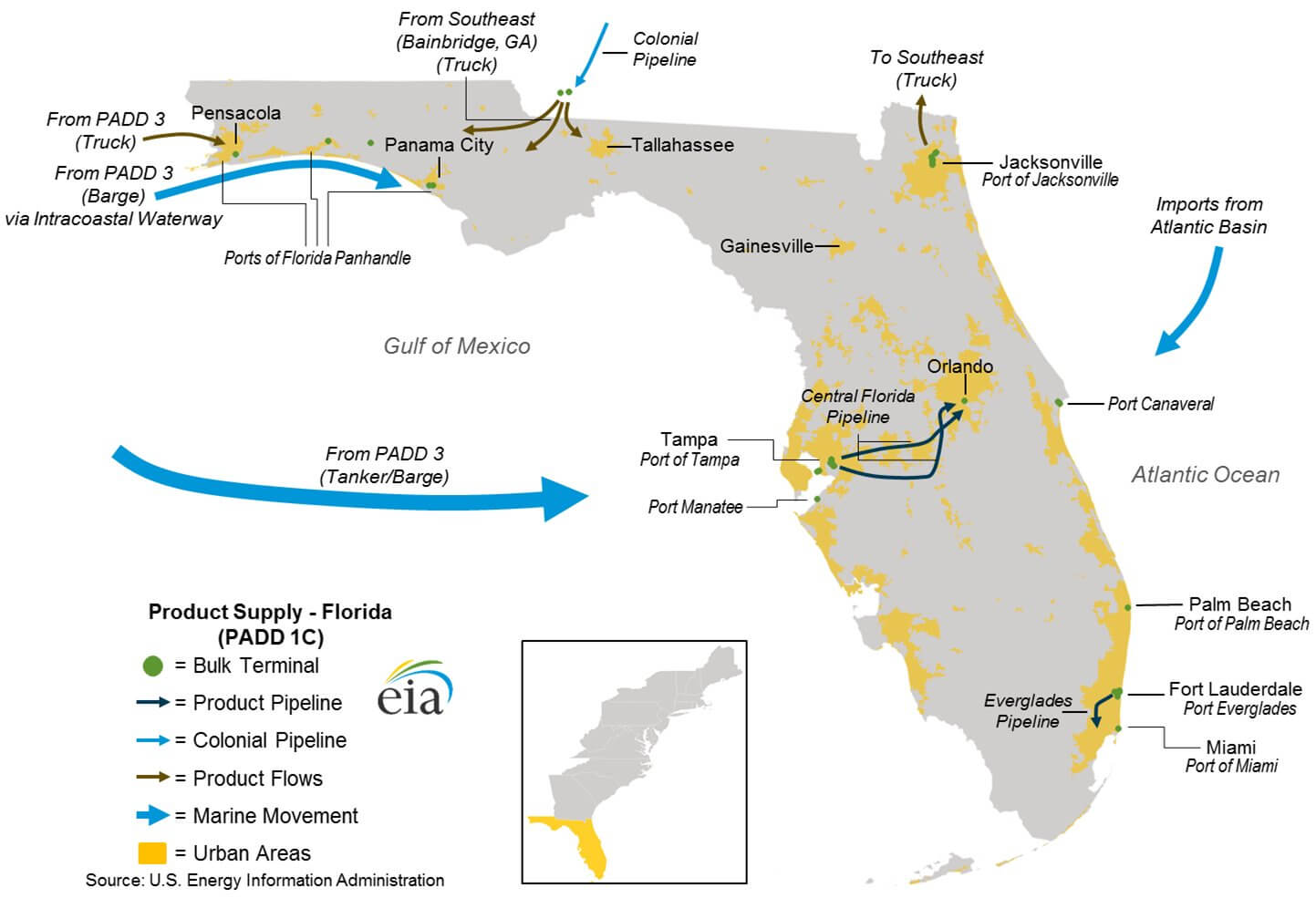As Hurricane Nears, Port of Tampa Bay's Energy Role Takes Center Stage

The impending arrival of Hurricane Milton in western Florida has left residents scrambling to get out of the Tampa Bay region, and in their rush to evacuate, drivers have used up so much gasoline that about 40 percent of service stations in the Tampa area have run dry. State troopers are escorting fuel trucks from the Port of Tampa Bay, home to a major receiving terminal for refined products, to clear traffic and get tanker trucks to retail gas stations - highlighting a little-noticed but critical role that the port plays in Florida's economy.
According to the Florida Maritime Association, nearly 90 percent of Florida’s refined petroleum products are shipped from refineries in Texas, Louisiana, and Mississippi aboard Jones Act tankers, making this one of the busiest trade lanes in U.S. coastwise transportation. This critical transport link flows through Port of Tampa Bay, which handles more than 40 percent of the state's petroleum products.

The Coast Guard has closed the port's shipping channels in advance of the arrival of tropical storm force winds, but the landside operations will continue as long as safely possible, according to the port. Once the storm has passed and the port has reopened, Jones Act vessels are already positioned to offload more fuel for rescue and recovery operations, according to the FMA.
In expectation of significant impacts from Hurricane Milton, Senators Rick Scott and Marco Rubio (R-FL) have asked President Joe Biden to put extra resources behind the post-storm recovery for Port of Tampa Bay and its 70 miles of shipping channels. The area is known to be vulnerable to storm surge and shoaling, and the senators emphasized the port's critical role in energy transport.
"In severe hurricane conditions the port and channel could be . . . obstructed by sediment and other storm debris. The port’s location could also result in some of the most severe storm surge from Hurricane Milton impacting onshore facilities, including petroleum infrastructure," the senators warned. "Long-term disruptions to the port would not only hinder disaster response and recovery, but have lasting consequences for Florida’s economy."
The senators asked the White House to prepare Coast Guard and Corps of Engineers assets to address debris, navigability and emergency dredging needs as fast as possible, and even tap federal resources to repair fuel terminals if they are damaged by the storm. The senators also requested a Jones Act waiver for "maritime modes of transportation" to "facilitate interstate deliveries of petroleum fuel products."
Florida's elected officials have reason to be concerned about the potential damage. Hurricane Milton is headed east across the Gulf of Mexico as a Category 5 storm, and while it is likely to weaken before landfall, its horizontal extent will likely spread - and its storm surge will be deadly. The most-affected areas - potentially including Tampa - could see a life-threatening surge of up to 15 feet. The center is likely to make landfall along the west coast of Florida on Wednesday night and move across central Florida through Thursday.
No comments:
Post a Comment